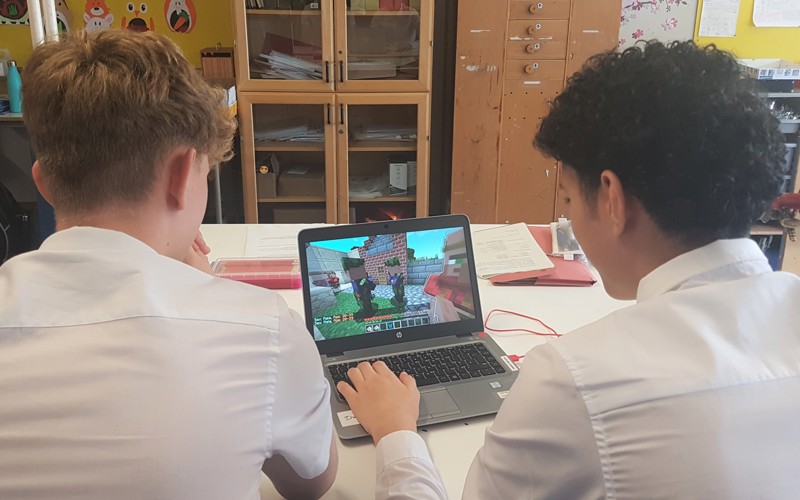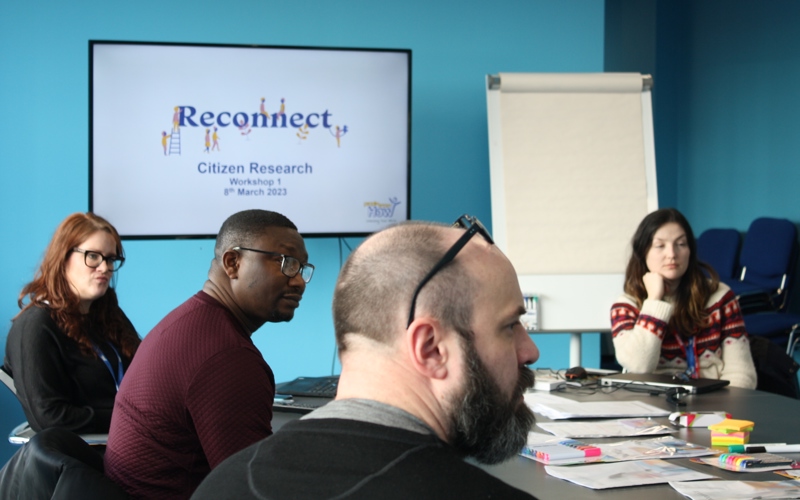
Diverse voices, better outcomes
Public Engagement Manager, Katie Oldfield, shares an update on the projects funded by our Public Engagement Fund and how they are working to involve diverse voices.
Katie Oldfield
11 Sept 2023

Katie Oldfield
11 Sept 2023
Five months into our Public Engagement Fund, Katie Oldfield, Public Engagement Manager, provides an update on the funded projects and shares her thoughts on the importance of creating a lasting impact.
The data world can be intimidating. Concepts can be confusing, and even entry-level information can be tricky to explain and understand. Even when the public are looking to actively engage in conversations about data in research, there are often lots of obstacles in place and it can be hard for people to how to get involved.
Data professionals have a responsibility to remove these obstacles, and it’s been interesting and exciting to see the variety of approaches the recipients of our Public Engagement Fund have taken to break down these barriers.
Education is an important step in removing the barriers to engagement and opening opportunities for ongoing input, and this has been at the forefront of People Know How’s project, ‘Digital Citizen Research’.
People Know How are working with the University of Edinburgh to train five people from low Scottish Index of Multiple Deprivation areas of Edinburgh to become citizen researchers. The citizen researchers will engage with others about digital inclusion and learn more about the obstacles that prevent people from engaging with data research. The training focuses on promoting an unbiased approach to research, understanding what good research looks like and using open communication skills.

Education is also a cornerstone of the University of Glasgow’s SHINE project (Schools Health and Wellbeing Improvement Research Network), which is working to reach young people from across Scotland, including areas that often aren’t involved in conversations about data research.
They’re working with secondary schools in West Lothian, the Scottish Borders, Aberdeen and East Dunbartonshire, to engage young people in conversations about data linkage and mental health in schools. Through focus groups and workshops, they’re developing video and infographic resources which will be shared with schools, ensuring that ongoing conversations continue even after the project has ended.
Educating and empowering marginalised voices through engagement work is vital, but without a clear output, the impact of any project can be limited.
The team behind the University of Glasgow’s ‘Perinatal Mental Health’ project are ensuring an ongoing impact of their work through the creation of an animated video based on population-wide research into perinatal mental health of mothers in Scotland. They’re planning a public premiere of the animation as part of the Scottish Mental Health Arts Festival, and it will then be available as an resource to provide information and support to a wide, ongoing audience.
The University of Edinburgh’s ‘Mental Health – Imagining Beyond’ project is taking a similar approach. Art and creativity play a positive role in mental health and wellbeing, and the team are working with people with lived experience of mental health and inequality to explore why they have been underserved by data research.

Working with the Community Wellbeing Collective in Wester Hailes and with a focus on identifying gaps where data may not reflect lived experiences, they’ll run workshops that will result in creative outputs that can be shared to create positive change.
Public-facing outputs like these are valuable resources to help share the projects’ work in engaging ways, reach wider audiences, and ensure a longevity that extends past the end of the projects themselves.
Across all of these projects, the common theme that emerges time and time again is the value of engaging with a wide cross-section of the public and people outside of the usual data community. The data that is captured in Scotland belongs to the people it is about, and we in the data community have a responsibility to ensure that everyone understands how their data is used and feel empowered to shape the future.
There’s still a long way to go, but I’m incredibly proud of the work these projects have undertaken so far to break down barriers and engage diverse voices in data and research.
Read more about our Public Engagement Fund recipients in Katie's blog, 'Diverse voices, better outcomes'.
Find out more about our Public Engagement Fund recipients.
Note: Funding from the RDS Public Engagement Fund was also awarded to CodeClan, an Edinburgh-based digital skills academy, which has since sadly entered liquidation and ceased trading. The project therefore may not be able to continue.
Related content

Public Engagement Manager, Katie Oldfield, shares an update on the projects funded by our Public Engagement Fund and how they are working to involve diverse voices.
Katie Oldfield
11 Sept 2023

Research Data Scotland (RDS) is proud to support three projects that are set to receive funding from Data and Analytics Research Environments UK (DARE UK).
Research Data Scotland
28 Feb 2023
To stay updated with Research Data Scotland, subscribe to our mailing list or follow us on Twitter and LinkedIn.
